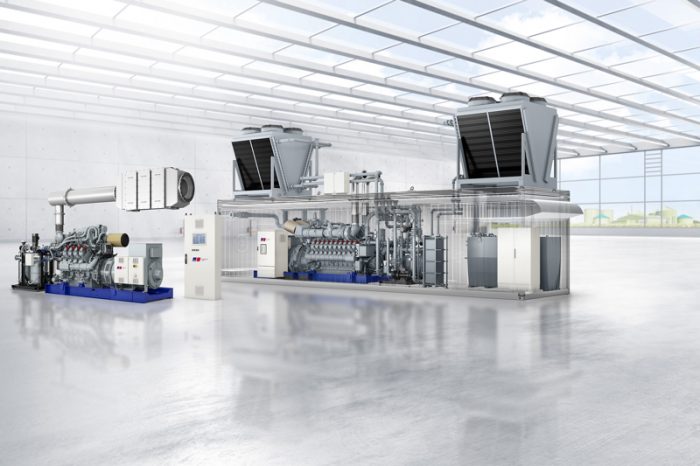Rolls-Royce introduces the new highly-efficient mtu Series 4000 biogas gensets

- Building block for energy transition: mtu biogas gensets generate CO2-neutral base-load power and can also serve as storage solution
- Highest efficiency and power density with low life-cycle costs
- Powerful in all climate regions worldwide: 8-, 12-, 16- and 20-cylinder variants
- First 12-cylinder system delivered to Thailand for use in starch production
Rolls-Royce is now offering new mtu Series 4000 biogas gensets for power and heat generation, setting new standards in efficiency, power density and life cycle costs. “The new Series 4000 L64FB engines are designed for global use and are extremely robust, showing consistently high performance even under extreme conditions of ambient temperature, humidity and altitude”, explained Vittorio Pierangeli, Vice President Global Powergen at the Rolls-Royce business unit Power Systems. At starch producer Tongjit in Thailand, the first new mtu biogas gensets are currently being installed to supply electricity and hot steam to the factory.
mtu biogas solutions help industrial customers save on electricity costs by generating their own electricity and, they provide a stable power supply even in the event of power outages. The basis for the development of the new series is the experience gained with the predecessor models (L32 for biogas and L64FNER for natural gas), which have proven themselves worldwide. In total, Rolls-Royce has supplied more than 4,000 Series 4000 gensets for natural gas, biogas and other gases to the global gas market.
Peak efficiency of 44.1 percent for new 12-cylinder mtu biogas gensets
Already available is the 12-cylinder version, which offers an electrical output of 1,521 kWe with a new peak electrical efficiency of 44.1 percent and an overall efficiency of more than 90 percent. Compared to the previous Series 4000L32FB model, output has been increased by 30 percent. The system’s compact design ensures the smallest footprint and highest power density in its class. As a result, the new 12-cylinder variant delivers just as much power as the 16-cylinder variant of the predecessor L32 model. The other cylinder configurations (8V, 16V, 20V) are also available to order for delivery in 2024.
Best lifetime in its class: 84,000 hours until major overhaul (TBO)
The development of the new mtu Series 4000 L64FB biogas gensets also focused on reduced life cycle costs and ease of maintenance. With an engine lifetime of up to 84,000 operating hours until major overhaul (TBO), the new mtu gensets break records. For plant operators, the long service life is very cost-efficient. To meet the world’s strictest exhaust gas standards (e.g. 44th BImSchV in Germany), the genset can optionally be combined with a suitable exhaust gas aftertreatment system from the mtu product portfolio.
CO2-neutral, reliable and predictable: A contribution to the energy transition
Biogas-fueled mtu gas systems provide CO2-neutral, reliable and predictable electricity as well as heating and cooling energy. The electricity can serve the company’s own needs and contribute to grid stabilization as base-load electricity and balancing power. Thus, in times of energy crisis and non-constant wind and solar energy, biogas systems serve as a constant, environmentally-friendly and flexible source of electricity.
First use at starch producer in Thailand
In addition to agricultural applications, the gensets are also in demand for use at waste water treatment plants (sewage gas), landfill sites (landfill gas) and in food processing, for example. Rolls-Royce is already installing a first 12-cylinder mtu Series 4000 L64FB biogas CHP at starch producer Tongjit in Thailand. The family-owned company already has a 20-cylinder unit of the previous model in operation and will now be able to supply its entire factory with its own electricity, thus saving electricity costs of around 600,000 euros per year.
For more information, please visit https://www.mtu-solutions.com.
News Categories
- » NEWS HOME
- » Automation & Robotics
- » Industry 4.0
- » Material Handling
- » Sensors
- » Quality & Testing
- » Machine Vision
- » Laser & Optics
- » Metalworking
- » Motion Control & Drives
- » Hydraulics & Pneumatics
- » Process Industry
- » Renewable Energy
- » Agriculture
- » Home & Office Furniture
- » Environmental Tech



